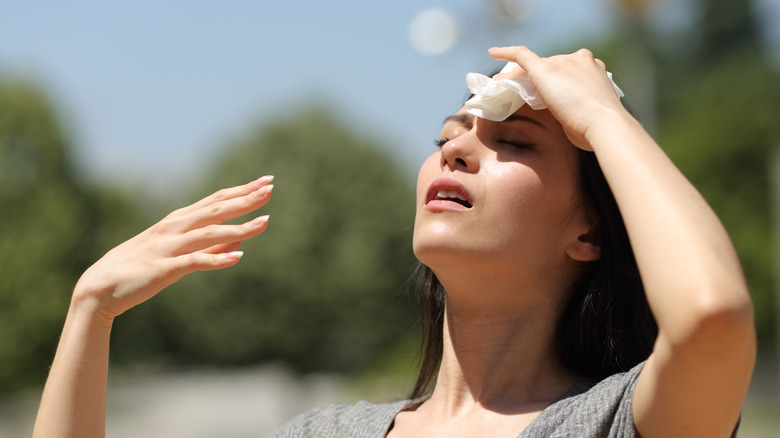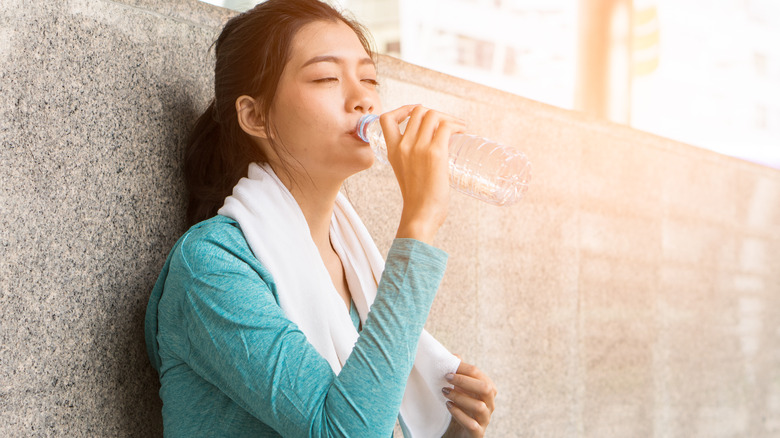
Pheelings media/Shutterstock
By Sophie McEvoy/Aug. 30, 2021 7:05 pm EDT
Summer may be coming to an end, but that doesn’t stop a heatwave from rearing its head just as you prepare to delve into all the spooky goodness that fall brings. Until that first leaf falls, there’s still a chance that you’ll be dealing with uncomfortably high temperatures.
As nice as it is to soak up those rays, the sun’s heat can be the catalyst for a major health problem known as heat stroke. Described as the “most serious heat-related illness” by the Centers for Disease Control and Prevention (CDC), this condition happens when the body is unable to regulate its temperature. It also causes your body to stop sweating, which is a bodily function that would usually cool you down.
According to the Environmental Protection Agency (EPA), more than 1,300 deaths per year are related to extreme heat in the United States. These deaths are mainly attributed to conditions brought on by the stress of a hot day, like heart attacks and respiratory conditions. However, heat stroke is still prevalent and can cause a lot of damage to your body.
The symptoms of heat stroke can be fatal if not treated immediately

Symptoms of heat stroke can appear within 10 to 15 minutes of your body temperature reaching 106 degrees. According to the CDC, you need to be on the look out for confusion, loss of consciousness, hot or dry skin, profuse sweating, and seizures. The Mayo Clinic also lists nausea, vomiting, rapid breathing, flushed skin, a racing heart rate, and a headache as possible symptoms.
If not treated immediately, heat stroke can cause vital organ damage, according to the Mayo Clinic. When a body’s temperature is not lowered in time, this can cause the brain or other organs to swell which in turn can cause permanent damage. In a worst case scenario, failure to seek out emergency medical help can result in death.
Preventing yourself from heat stroke is relatively easy, it’s all down to how you look after yourself in the heat. The National Health Service (NHS) suggests keeping yourself hydrated throughout the day with plenty of cold drinks, especially if you’re planning on hitting the gym. Taking cool baths and showers can help regulate your body temperature, and sprinkling water over loose fitting clothes can be a major help in cooling down.
Most of all, though, avoid direct sun as much as possible between 11 a.m. and 3 p.m. If you do happen to be outside, make sure you keep in the shade.
Source: Read Full Article